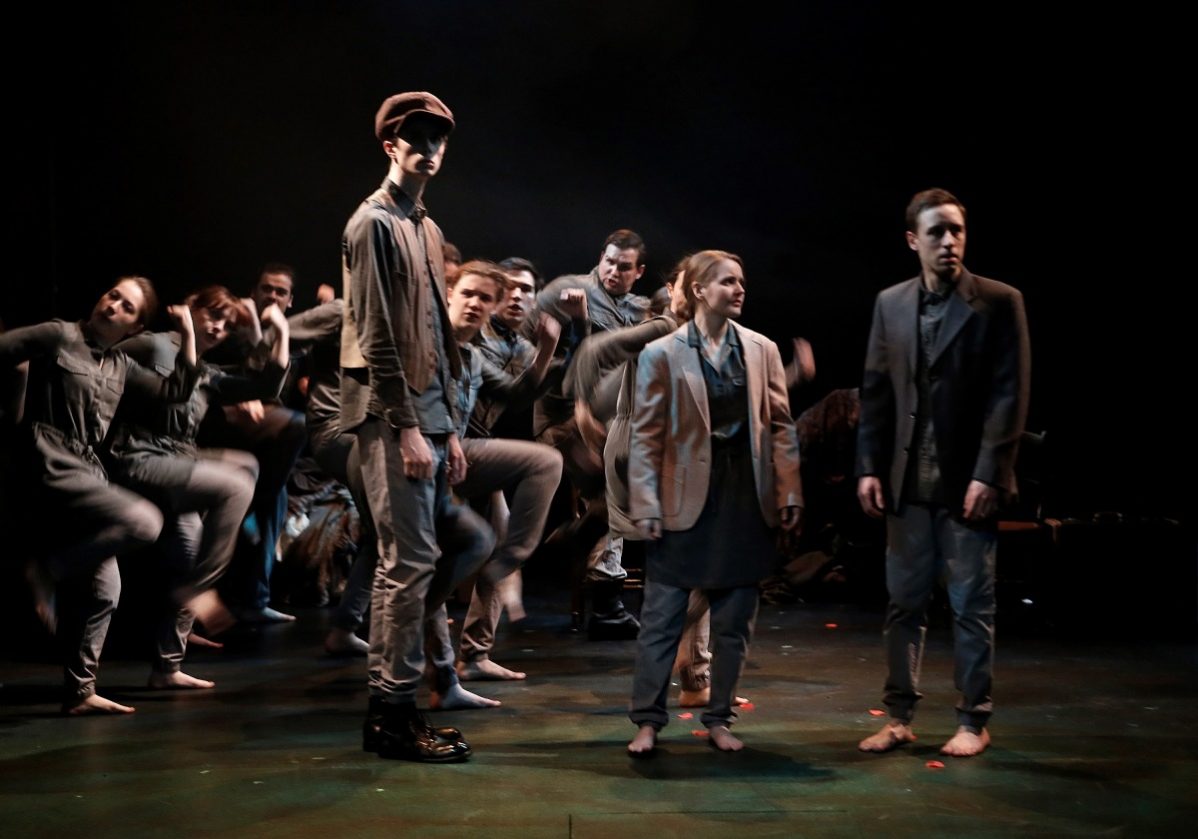GBC theatre school revives Brecht’s 1930s classic, Fear and Misery of the Third Reich
★★★★½
The sound of an authoritarian state isn’t just the fall of jackboots goose-stepping in unison. It’s also the sound of hushed conversations that are suddenly cut short with the worry that someone overheard.
In the George Brown theatre school production of Bertolt Brecht‘s Fear and Misery of the Third Reich, a Jewish wife looks at the her husband and says, “The walls have ears, is that it? But you people say nothing.”
Brecht, a committed Marxist, wrote the series of playlets about his native Germany’s transformation from the liberal Weimar Republic into a Nazi state, while in exile between 1935 and 1938.
In one scene, a young boy disappears from his house during an argument between his parents. When they realize that he’s left without a word, they fear he may be on his way to report them to his Hitler youth group and worry what they said that could be perceived as being against the government.
At the start of the play, the ensemble cast walk out onto the stage and remove their shoes, performing mostly in bare feet. Along with a couple of piles of discarded clothing, the simple set foreshadows the Holocaust that hadn’t happened when the play was first produced in 1938.
The play does feature a couple of scenes set in pre-war concentration camps, but the majority of prisoners in them are political, with factional squabbles breaking out between communist and social-democratic prisoners, as their Nazi guard sends them to solitary confinement.
The integration of dance into the performance gives the piece a sense of dynamism and collectivity that reflect both Brecht’s communist politics and what, at the time, was a groundbreaking approach to theatre.
While not quite a satire, the play has some bitingly funny moments that the cast delivers with a zing.
It’s a real credit to the performers that they can immerse themselves in their characters during the quick scenes and they are utterly believable, even when playing children.
While one could draw parallels between Brecht’s work and today’s political moment, the production does well to steer clear of any overt comparisons.
The mistrust that permeates the country is most clearly shown in a scene where a man returns crippled from a concentration camp but instead of being received by his friends with compassion, he is treated with suspicion.
Brecht largely stays away from polemics, instead using his masterful grasp of prose and poetry, but as a staunch anti-fascist, he makes sure to send a message of resistance at the end.
Two men and a woman are in a working-class flat debating if they should produce a leaflet against the 1938 annexation of Austria. A letter from a condemned prisoner is read and he urges his son to “stick with your own class” and they decide that the only word they need on the leaflet is “No!”
Fear and Misery of the Third Reich is playing until April 21 at the Young Centre for the Performing Arts. Tickets are $25 or $10 for students (ID required) and can be purchased at youngcentre.ca.


